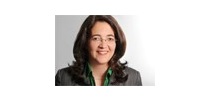 Rugsėjo 18–19 dienomis Vilniaus universiteto Kauno fakultete lankysis mokslininkė iš Vokietijos kultūros politikos draugijos Ulrike Blumenreich.
Rugsėjo 18–19 dienomis Vilniaus universiteto Kauno fakultete lankysis mokslininkė iš Vokietijos kultūros politikos draugijos Ulrike Blumenreich.
Vokietijos kultūros politikos draugija yra savanoriška visuomeninė organizacija, kurios tikslas – „kultūrinės demokratijos plėtojimas ir meno laisvės saugojimas“. Draugija įkurta 1976 m., jos būstinė yra Bonoje, šiuo metu jai priklauso 1400 narių – individų ir organizacijų, dirbančių kultūros ir meno politikos, administravimo, komunikacijos, švietimo srityse. Draugija leidžia kultūros politikos metraštį, vykdo kultūros srities tyrimus, organizuoja kasmetinį kultūros politikos kongresą ir įgyvendina įvairius projektus.
Ulrike Blumenreich studijavo taikomuosius kultūros tyrimus Lüneburgo (Vokietija) and Växjö (Švedija) universitetuose. 1995–1999 m. dirbo Lüneburgo kultūros centre „Vamos“. Nuo 1999 m. ji yra Vokietijos kultūros politikos draugijos Kultūros tyrimų instituto, įsikūrusio Bonoje, mokslinė asistentė. Šiame institute ji vadovauja įvairiems tyrimų projektams – Kultūra ir darbo rinka, Kultūros finansavimas ir pan., taip pat skaito paskaitas universitetuose, kuruoja Vokietijos profilį tarptautinėje duomenų bazėje Compendium for Cultural Policies and Trends in Europe, yra kultūros politikos žurnalo Kulturpolitische Mitteilungen redakcijos narė, dalyvauja įvairiose sociokultūrinio darbo projektų komisijose.
Rugsėjo 18–19 dienomis Ulrike Blumenreich skaitys paskaitas anglų ir vokiečių kalbomis:
- Cultural policy issues in Germany (09.18, 9.45–11.15, II aud.).
The lecture gives an overview about the system of cultural policy in Germany while introducing the policy model, informing about the organisational structure and main actors as well as about funding of culture. Furthermore it will point out current hot issues of cultural policy in Germany and discuss the hot topics in Germany and in Lithuanian from the perspectives of both countries.
- Cultural labour market in Germany (09.18, 13.45 – 15.15, J. Jasaičio aud.).
Discovering the cultural labour market in Germany: What is the educational background of the employees? Which skills are needed? What kind of experiences do the cultural organisations have with graduate of cultural study programs? How about the knowledge of cultural organisations about the landscape of cultural study programs? This lecture tries to answer these (and some more) questions for Germany and invites to reflect these issues for Lithuania as well.
- Cultural study programs at higher education institutions in Germany (09.19, 12.00–13.30, I aud., paskaita vyks vokiečių kalba).
After a short introduction of the education system in Germany this lecture focuses on the landscape of cultural study programs. The results of a national research project on this topic will be presented – answering questions about e.g. types, subjects and generated skills at cultural programs at higher education institutions in Germany and the relationship between study programs and labour market – as well as it will be discussed the challenges.
- Cultural infrastructure and cultural research in Germany (09.19, 15.30–17.00, VeGa aud.).
Germany has a wide cultural infrastructure with e.g. more than 350 theaters and more than 4.000 museums. This lecture aims to give an idea about the system, the structure and the funding of culture and its infrastructure. Let´s discuss the main challenges of e.g. funding issues in Germany and in Lithuania. Who is going to observe, monitor or evaluate the cultural scene? How does the landscape of cultural research look like in both countries?
Kviečiame!